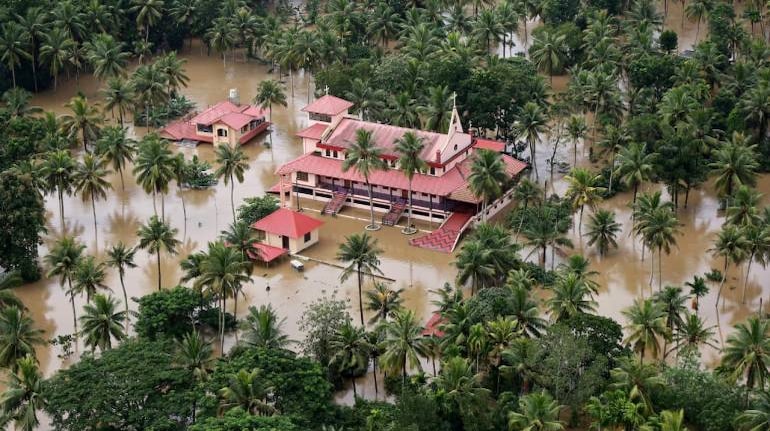



With incidents of urban flooding on the rise, the Centre is planning to hold a workshop next month to draw up recommendations on how cities should plan for mitigation of such disasters and deal with them at the city and at the municipal corporation level, sources told Moneycontrol.
There has been an increasing trend of urban flood disasters in the country over the years - Hyderabad in 2000, Ahmedabad in 2001, Delhi in 2002 and 2003, Chennai in 2004, Mumbai in 2005, Surat in 2006, Kolkata in 2007, Jamshedpur in 2008, Delhi in 2009 and Guwahati and Delhi in 2010. The most recent devastating ones were Srinagar in 2014, Chennai in 2015, Kerala and Nagaland in 2018.
The interaction being planned by the Ministry of Housing and Urban Affairs in October will have experts deliberating on how cities that face floods should equip themselves to deal with the challenge. It is expected to come up with recommendations on how cities should deal with heavy rains, river overflows, deal with issues such as housing in low lying areas and challenges associated with relocation etc, sources said.
The workshop is expected to discuss problems associated with urban flooding that results in cities being inundated from a few hours to several days. Floods lead to temporary relocation of people, damage to civic amenities, deterioration of water quality and risk of epidemics etc. Unplanned development and encroachments of sprawling habitations alongside rivers and watercourses have meddled with the natural streams and watercourses due to which the runoff has increased in proportion to urbanisation of the watersheds causing urban floods.
A few years ago, National Institute of Urban Affairs (NIUA), an institute for research, training and information dissemination in urban development and management, had brought out a document titled 'Urban Flooding Standard Operating Procedures'. It covered three phases of disaster management for effective response to urban flooding. Pre-monsoon phase - preparedness and planning for disaster reduction, during monsoon phase - early warning effective response and management relief planning and execution.
Sources said that the workshop to be in held in October is not being organised with a view to bring out another manual but actionable points. The SOP that was brought out by the ministry few years ago, looked at the broad level procedures that mostly put the responsibility of everything from preparing plans post disaster management on the district collector.
"The district collector and municipal corporations don't necessarily work in sync in cities. This is a major issue. Therefore, cities and municipal corporations themselves have to have the necessary understanding, procedures and technologies in place for them to manage and prevent such disasters," experts said.
Some measures that could be taken by cities could include developing early warning systems that inform civic authorities which areas are likely to be inundated and for how long, experts said, adding this could help them alert the public, divert traffic, and evacuate residents. Other measures are to do with improving the drainage systems, ensuring regular cleaning of drains, mapping of water bodies, topographical survey of cities, regulating new construction in low-lying areas, etc.
vandana.ramnani@nw18.com
Discover the latest Business News, Sensex, and Nifty updates. Obtain Personal Finance insights, tax queries, and expert opinions on Moneycontrol or download the Moneycontrol App to stay updated!
Find the best of Al News in one place, specially curated for you every weekend.
Stay on top of the latest tech trends and biggest startup news.